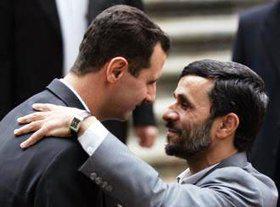
Email interview with Dr. Touraj Daryaee, the Howard C. Baskerville Professor in the History of Iran and the Persianate World and the Associate Director of the Dr. Samuel M. Jordan Center for Persian Studies and Culture at the University of California, Irvine. Nevermind the title. He's the most interesting scholar of ancient Iranian studies today. Listening to his lectures brings history back from the dead. His latest public offering is a collection of essays by various scholars including himself titled Cyrus the Great A King of Ancient Iran (Afshar Publishing, 2013). It is particularly relevant given the rise in nationalist views that identify with the pre-Islamic Persian past. Although Daryaee hopes Iranian youth will try to gain a deeper understanding of history than past generations who have turned Cyrus into a "political football."
At a time of growing democratic aspirations and the rise of several movements against totalitarianism in the past hundreds years or so, are Cyrus' ideas and his style of imperial government relevant for today's needs?
Well, we should not compare antiquity with present history. Cyrus was a local ruler who was able to establish the largest empire of the ancient world. In this campaign people die and there are captives. But what makes Cyrus stand out is that he knew politics and how peacefully accomplish his mission. What we can learn today from him is that some 2500 years ago someone believed that as long as different people with their religious traditions and way of life are allowed to do worship freely and conduct their lives, there will be prosperity. I think the Iranian youth understand this and have similar aspirations.
We see Iranians' interest in their pre-Islamic past growing by the day, as witnessed by the thousands who now gather each year at Cyrus's tomb for New Year celebrations. What is this resurgence all about, the past or the present?
In the past century, Iran’s ancient past has become a political football. One regime makes the ancient Iranians the greatest thing and then the next one makes it the worst. This is especialy true for Cyrus the Great. One rarely encounters this kind of encounter with an ancient personage in other countries. I hope this interest by the youth would lead them to study their ancient past and the history of Cyrus better to gain a deeper understanding of the Iran’s civilization.
The Cyrys Cylinder tour in the US has been well received by the media and the public. What is it about Cyrus that attracts the interest of non-Iranians? If you were in charge of the tour, how would you improve it?
Cyrus is an important personage in the Bible and it is natural that the Western population would like to know more about him. The cylinder and other objects brings to fore the possibility of viewing some objects associated with him. I think the tour has been just fine, although I wish PBS or KCET would have put together a half an hour program on Cyrus and the cylinder and its importance. Also, more books on Cyrus would have been good.
Tell us something about Cyrus, his life or character, that the public may not be very much aware of.
We know that during the Mihregan feast when Cyrus drank and was marry, Greek sources tell us that he danced "the Persian." So he also liked to party when he could. So it was not all war and conquest or politics!
What's unique about the new book? What will we find here that other books on Cyrus lack or pay less attention to?
This is a concise book with five chapters on the life, career, religious belief and his cylinder, followed by the latest English and Persian translation of the cylinder. The authors are some of the most important scholars in the field, but they have written for the audience at large. I think it could be a great little book in introducing a king of ancient Iran to the public.
In what way has the field of study on Cyrus and the achaemenids in general changed in recenet decades?
We are now beginning to better understand the two Persian families, namely the Teispids (Cyrus' line) and Achaemenid (Darius' line) and how they created an empire. In the 1980s and 1990s a series of conference and the work of Pierre Briant has changed our understanding of the Achaemenid Iran. Briant has brought together scholars in various fields to study this largest empire of antiquity in a way that was not possible before. Briant's book, From Cyrus to Alexander in the late 1990s is a 1600 page masterpiece of scholarship on the Achaemenids. His website on the Achaemenids and his other books has cleared much that we did not know and corrected our view of this ancient empire.
What is the biggest question about Cyrus for which a clear answer has not yet been offered?
We still don't know exactly about his background and his religious beliefs. I think Pasargadae can tell us much more about Cyrus. Of course the cuneiform texts from Mesopotamia are our other hope.
Was Cyrus Iranian? Yes or no? :)
Well, it depends what Iranian is. He is from a land that has been called Iran for couple of thousands of years. Iran is the name which the Sasanian designated for their empire. But from the scant information that we have on Cyrus' religious practices, it suggests that he was culturally Iranian and part of the ancient Iranian religious world.




















comments